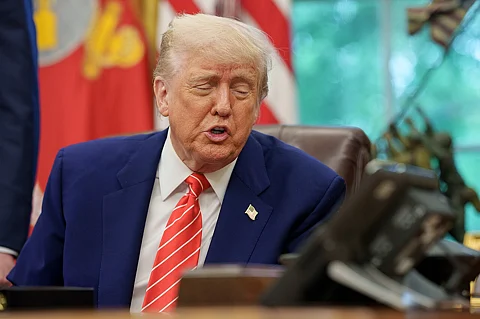

U.S. President Donald Trump announced Sunday that he will sign an executive order on Monday aimed at lowering prescription drug costs by tying Medicare payments to the lowest prices paid by other wealthy nations. The move revives a long-standing but previously unsuccessful effort from his first term to address an issue he has frequently criticized since before taking office.
The order, which Trump described in a post on his social media platform Truth Social, would direct the Department of Health and Human Services (HHS) to adopt a "Most Favored Nation" policy for certain Medicare-covered drugs. Under this approach, the U.S. government would pay no more than the lowest price available in other economically advanced countries.
The order is expected to focus on medications covered under Medicare Part B, which includes drugs administered in doctors’ offices, such as cancer treatments and other injectable therapies. Medicare, which provides health coverage for roughly 70 million older Americans, spent over $33 billion on Part B drugs in 2021. A report from Trump’s first term found that the U.S. pays roughly twice as much as some other nations for these medications.
“Our country will finally be treated fairly, and our citizens’ healthcare costs will be reduced by numbers never even thought of before,” Trump wrote. He claimed the policy would cut U.S. drug prices by 30% to 80%, though his assertion that it would save “TRILLIONS OF DOLLARS” appears exaggerated.
The proposal is unlikely to affect more common prescription drugs filled at pharmacies, which fall under Medicare Part D.
The pharmaceutical industry has long opposed such measures, arguing that lower prices would stifle innovation and drug development. When Trump attempted a similar policy in 2020, a court blocked its implementation under the Biden administration.
Drugmakers also contend that international reference pricing would allow foreign governments to dictate U.S. drug costs. “Government price setting in any form is bad for American patients,” said Alex Schriver, a spokesperson for the Pharmaceutical Research and Manufacturers of America (PhRMA), the industry’s top lobbying group.
Trump, however, has repeatedly accused drug companies of overcharging Americans while benefiting from higher U.S. prices. “Pharmaceutical companies would say, for years, that it was research and development costs, and that all of these costs were, and would be, for no reason whatsoever, borne by the ‘suckers’ of America, alone,” he wrote Sunday.
The announcement comes as Trump seeks to contrast his healthcare agenda with that of President Joe Biden, whose Inflation Reduction Act already empowers Medicare to negotiate prices for select drugs. Ten medications are currently under negotiation, with new prices set to take effect next year.
Trump teased the order last week, calling it a “very big announcement” but offering no details. On Sunday, he framed the move as a blow against industry lobbying, declaring, “Campaign contributions can do wonders, but not with me, and not with the Republican Party.”
Whether the policy will take effect remains uncertain, given legal and political hurdles. But the effort underscores Trump’s continued focus on drug pricing—an issue that has frustrated policymakers in both parties for decades.